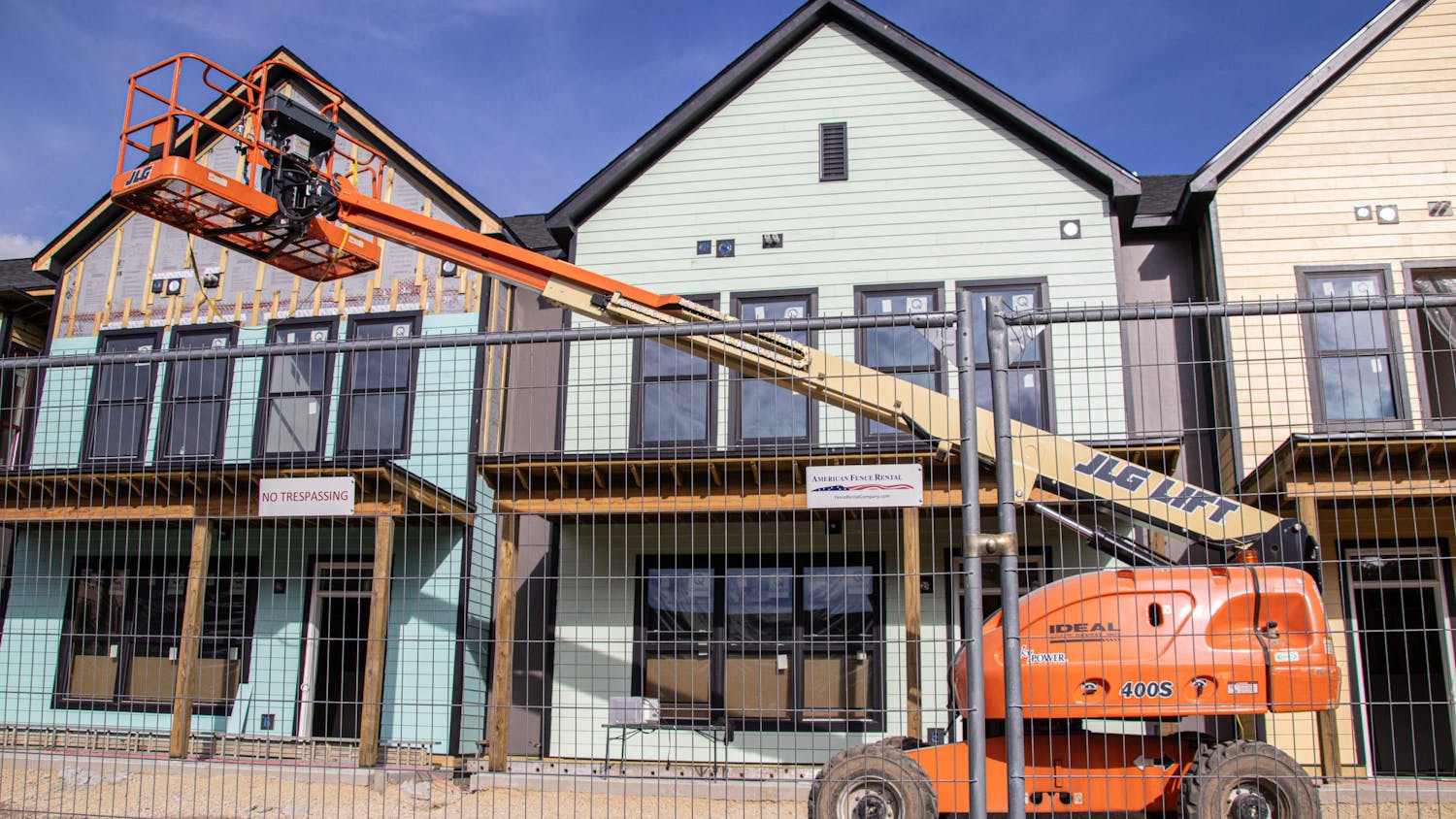Mayor Satya Rhodes-Conway released the City of Madison’s 2026 executive operating budget Tuesday, highlighting a 4.6%, or $20 million, spending increase from last year.
The $452.5 million budget funds salaries, community-based organizations and supplies and equipment including “police, fire, emergency medical services, library and park programs, garbage and recycling collection, snow and ice removal and more,” according to the budget overview.
The largest items include $1.7 million for the Bartillon homeless shelter and $320,000 in staffing for the new Imagination Center library. The budget also includes a tax rate increase of 2.7%, or $30 annually for average Madison homeowners — the lowest tax rate increase in 40 years.
The budget includes a blanket 3% salary increase for general municipal employees and protective service staff, who comprise the majority of city employees. The announcement follows a negotiation process between Metro Transit and unionized transportation workers that resulted in a new contract and a 3% increase in salaries to cover cost-of-living last month.
About 22% of the total budget, totaling $98.5 million, is dedicated to the Madison Police Department (MPD). $405,300 is allocated for the Office of the Independent Monitor (OIM), an MPD oversight position whose previous officeholder, Robin Copley, resigned on Oct. 6.
“Whether Madison wishes to fully pay the legally required minimum of the OIM’s nonexecutive staff will drastically impact its effectiveness,” Copley said in her resignation letter.
Copley’s salary started at $122,000 annually, meaning that if the Office hires a new OIM at the same rate, the office will still be able to support several staff members.
$76.8 million is dedicated to fire and emergency medical services agencies. The budget would add an ambulance to Madison’s paramedics fleet with nine paramedics, comprising $250,000 in total. Rhodes-Conway said there were over 200 times last year that all ambulances were deployed, and adding another ambulance will place less stress on emergency services agents.
A significant portion of the operating budget — 15.8% or $71.7 million — is classified as General Fund Debt Service, which is necessary to “pay back borrowing in the capital budget” according to the budget overview.
Additionally, 12.0% or $54.4 million of the budget is dedicated to public works, including personnel and equipment costs.
The budget represents an overall spending increase of $20 million made possible by a 2024 referendum raising property taxes higher than the previous limit. The referendum filled a $22 million budget shortfall, and were it to have failed, the city estimated they would have faced $6 million in budget cuts.
Investing in public projects: Imagination Center Library, Bartillon homeless shelter
Wisconsin’s Demographic Services Center estimated in 2024 that Madison would have a population of 304,407 in 2030, an increase of around 30,000 from the current population of 269,840.
“Madison is adding close to 5,000 new residents every year, and that is expected to continue through 2030,” Rhodes-Conway said at a press conference for the operating budget on Oct. 6.
The operating budget allocates sufficient funds for staff for the Imagination Center, a new library which will be constructed at Reindahl Park, without pulling funding from other sources as previously envisioned.
The Imagination Center library will be Madison’s 10th library.
Though $1.7 million is dedicated to the Bartillon men’s homeless shelter, expected to finish construction in early 2026, a funding deficit of $3.3 million still exists before the shelter can function for 24/7 operation. Rhodes-Conway has called on other cities to fill the gap.
“This shelter will address a critical need for Madison and its neighboring communities,” Rhodes-Conway said at the press conference.
Historically, municipalities have not provided financial support for shelters, according to a City of Madison page.
The operating budget will need to be approved by the Common Council over the next month to be instated alongside Madison’s 2026 capital budget on July 1, 2026, the beginning of the state fiscal year.






